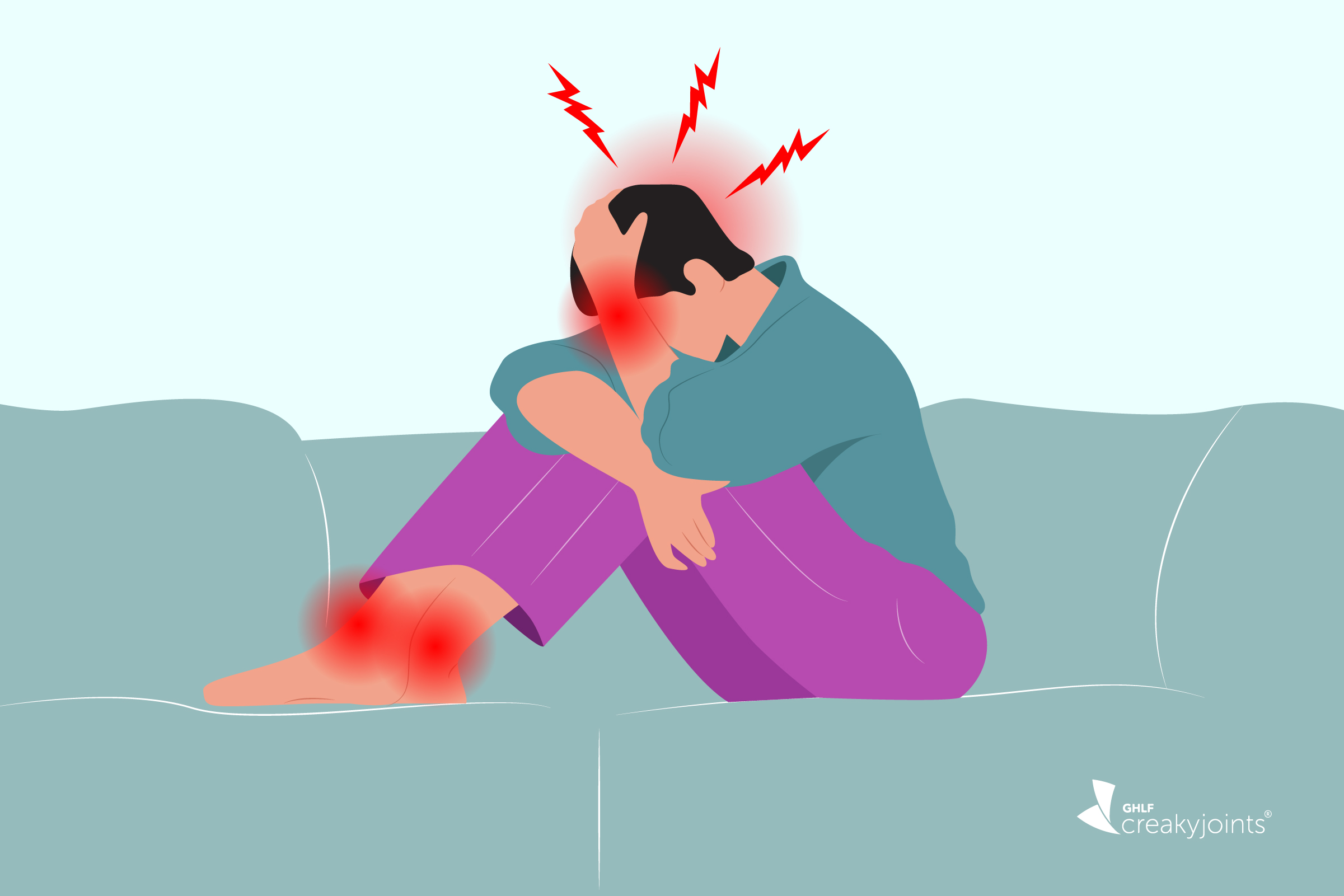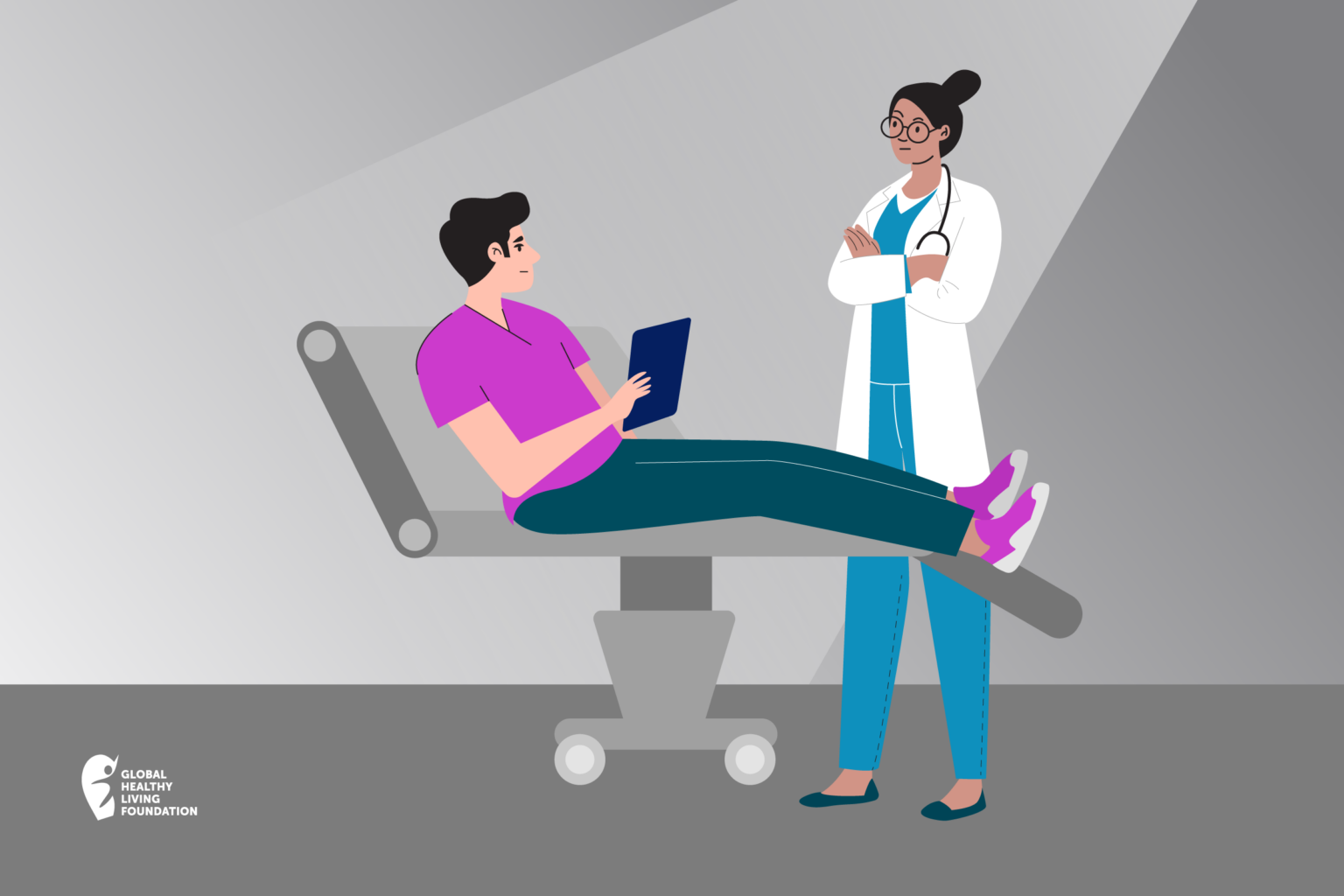“I couldn’t just ‘bounce back’ because my condition wouldn’t allow it. Living with chronic illness goes beyond what my usual coping strategies and support network can handle.”
Community and the Chronic Version of Me
Community and the Chronic Version of Me
“As my illness has progressed, I’ve had to adjust to new limitations and learn to communicate what can be expected from this current version of me.”
June 21, 2024
Evette Waters

“Sounds wonderful. I’ll put it on the calendar,” I text with a smiley emoji, but when I look at the calendar, I am not smiling. My cousin’s graduation party is at the beginning of next month, right in the middle of when I expect my period, and living with endometriosis, that means I will be bed-bound with pain. I wonder if I should text my aunt to cancel right now.
I feel the familiar cycle of guilt and grief begin to turn. I picture my young cousin’s grinning face. This is the cousin I babysat, played games with, and fed hot dogs with lots of “chetchup,” which is how he pronounced ketchup at 4 years old.
My chest tightens with frustration over how my life has changed. Before my health deteriorated with pain and fatigue from endometriosis, I championed family events. I was the one planning the annual pumpkin carving contest and the Christmas Eve talent show. I enjoyed creating important moments of connection for my large Black family.
As my illness has progressed, I’ve had to adjust to new limitations and learn to communicate what can be expected from this current version of me. Once again, I use the tools I know will help me move through this difficult situation.
Process Your Emotions
Here are some steps that help me process the many emotions of living with chronic illness.
- Silence the part of you that says I should and I must push myself even if I am in pain. This unkind inner voice that ignores your well-being and safety to achieve an ideal of physical ability is internalized ableism. Tell that mean voice to hush.
- Honor your limitations and kindly meet the needs of your body in the moment. Would a warm beverage, a soft seat, or a nap help you settle down?
- Give yourself time to move through the frustration of living with chronic illness. You might need to cry or journal to pass through these feelings. Give yourself permission to tend to your emotions.
Make a Plan
If you were always the one who never missed a party, or planned, cooked, or hosted events, choosing an alternative solution can lower your stress.
- Come late, leave early, or dial in. If you are well enough to attend, but don’t want to push yourself too hard, organize transportation that allows you to come and go when you feel your best. Or dial in via a video call. Connecting over technology can let you participate in those good party vibes.
- Delegate tasks. Use a free level of platforms like Sign-Up Genius or Asana to organize responsibilities.
- Meet at a restaurant. Eliminate the stress of hosting with a reservation. This is especially helpful for families with lots of dietary restrictions or picky eaters. Just choose an allergen-friendly establishment and enjoy.
Communicate Clearly
Letting friends and family know the details of your health might feel unnecessary, but if your habit is to hide pain or discomfort, they won’t know your struggles or how to adjust to your needs.
- Decide how much you want to share. You don’t have to share every detail with everyone. Choose what information is important to convey and who you trust to be supportive.
- When you RSVP explain that attendance is dependent on your health the day of the event. This allows others to manage their expectations and minimizes disappointment if you can’t attend.
- Let them know how much you care. Reassure them your relationship is important and you value staying connected.
Finding My Peace
With these steps I know I can handle the anxiety over my cousin’s party. First, I take a deep breath. Next, I take a few days to process my internalized ableism and to grieve over my illness. Then, I make a plan.
The next time I see my aunt, I am prepared to give an honest update. I tell her my mental and physical health has been challenging recently. Since I am comfortable with her, I share my symptoms, treatment options, and upcoming doctor’s appointments.
Finally, although tears spring to my eyes, I tell her that I may not attend the party. I assure her how much I want to be there and that if I can make it, even for a short time, I will. We recount some memories of babysitting her son when he was just a tiny little thang. We chuckle over what a rowdy child he was and marvel at the calm young man he has grown to be. I know she is just as sad as I am that I may not be at the party, but I know she understands and that our relationship won’t suffer.
Immediately after, I call a friend who also suffers with chronic pain and tell her about my win. I check my calendar and look forward to the ChronicHue meeting this month. I know these spaces honor the chronic illness struggle and that I am not alone as I walk this path. I am learning to live the best I can with chronic illness, and that community and connection are always available.
Leaning Into the Chronic Illness Community
Chronic illness can be isolating. Having your experience validated can lessen feelings of loneliness. Here are some GHLF resources to help.
- #CreakyChats is a monthly live chat hosted on X (formerly Twitter) for those living with arthritis and chronic disease.
- ChronicHue is a monthly virtual support group for BIPOCs living with chronic illness. Hear directly from participants about this welcoming community and learn how to sign-up here.
- Advocacy meets memes with GHLF’s social media accounts. Follow along for relatable content and helpful information.
Source:
SUBSCRIBE TO GHLF
RELATED POST AND PAGES
_
Was this article helpful?
YesNo






